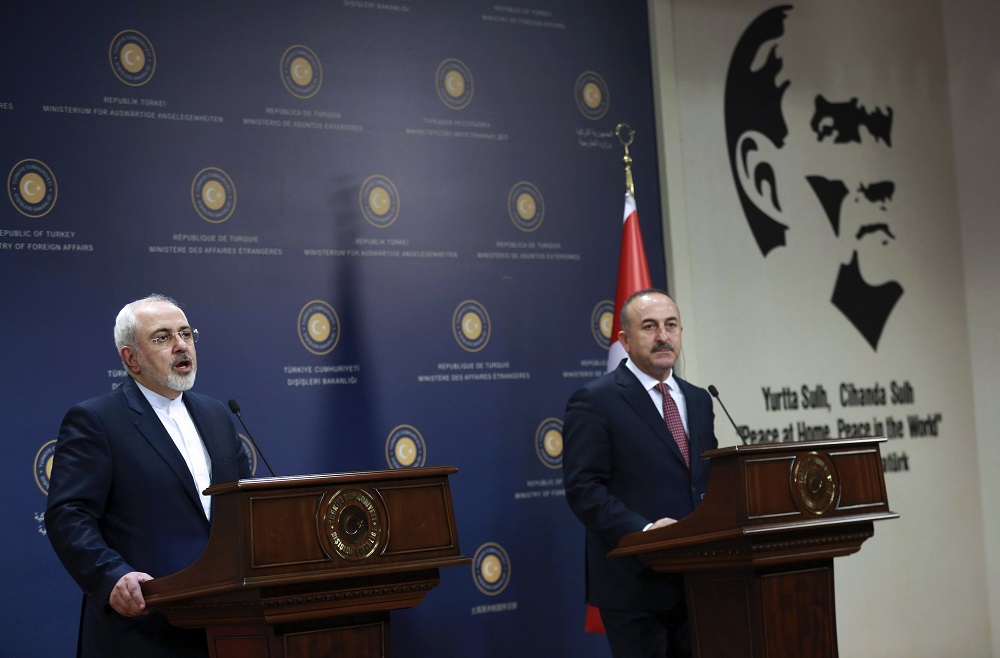Ankara – Turkish Foreign Minister Mevlut Cavusoglu held talks on Tuesday with his Iranian counterpart on the latest developments in Syria, revealed Turkish diplomatic sources.
They said that Cavusoglu and Mohammed Javad Zarif met on the sidelines of the emergency Organization of Islamic Cooperation executive committee meeting that was held in the Turkish city Istanbul.
The two officials tackled the agreements on a ceasefire in Syria and its de-escalation zones amid the eruption of clashes in some of these areas.
Spokesman for the Turkish presidency Ibrahim Kalin said that the suggestion of the de-escalation zones was made amid the state of fragmentation in the country.
He added however that the Russian-Turkish agreement over the zones “is not an alternative to Geneva, but comes to complement it.”
Meanwhile, the war of words between Ankara and Washington escalated as US Special Presidential Envoy for the Global Coalition to Counter ISIS Brett McGurk implied that Turkey may have ties with the terrorist organizations operating in Syria’s Idlib.
Kalin said that Ankara rejected the claims, deeming them “unacceptable”
He said in a televised interview on Tuesday that McGurk is one of the remaining figures of the administration of former US President Barack Obama, adding that he is known for having close ties with the Kurdish Syrian Democratic Union Party (PYD).
Cavusoglu had previously demanded that McGurk be replaced, accusing him of cooperating with the “Kurdish militias in Syria.” Turkish media even circulated photographs of the US official meeting with members of the Syrian Democratic Forces in the Syrian city of Raqqa.
Kalin added that Turkey has not seized Idlib, but it is helping thousands of refugees who have been evacuated from Aleppo and been brought closer to its border.
Furthermore, he said that the international community’s failure to reach a solution to the Syrian crisis, pushed extremist groups to head to the war-torn country from neighboring Iraq and other nations.
